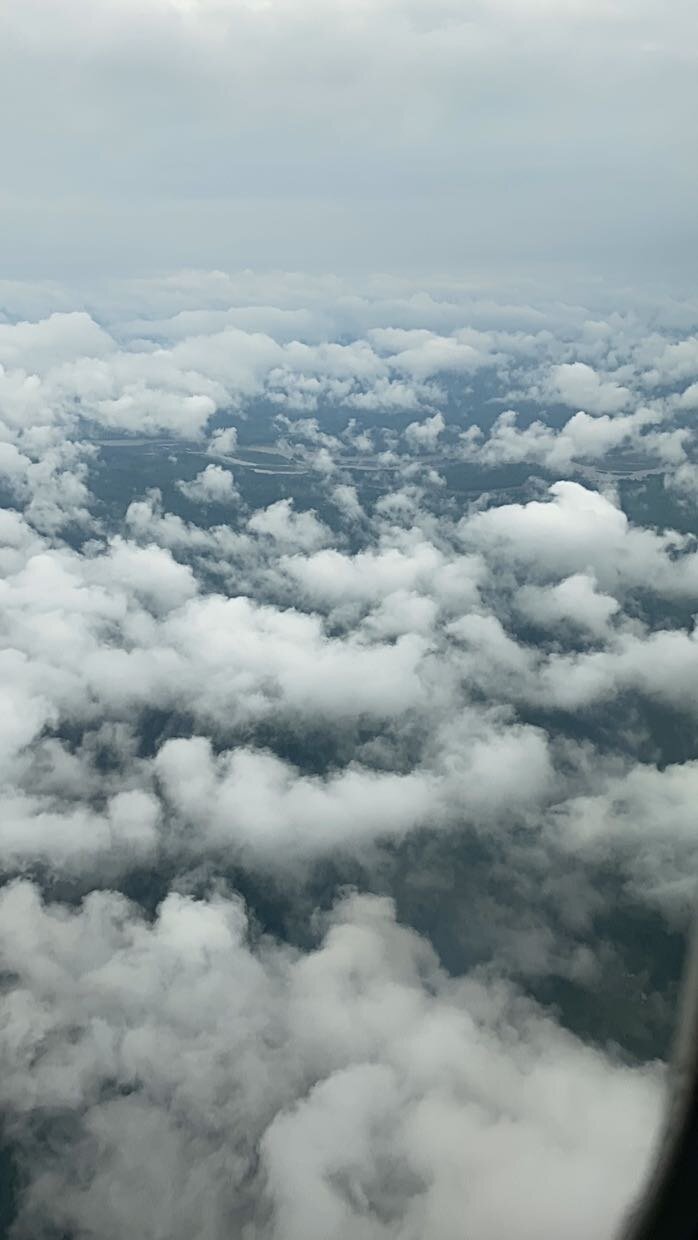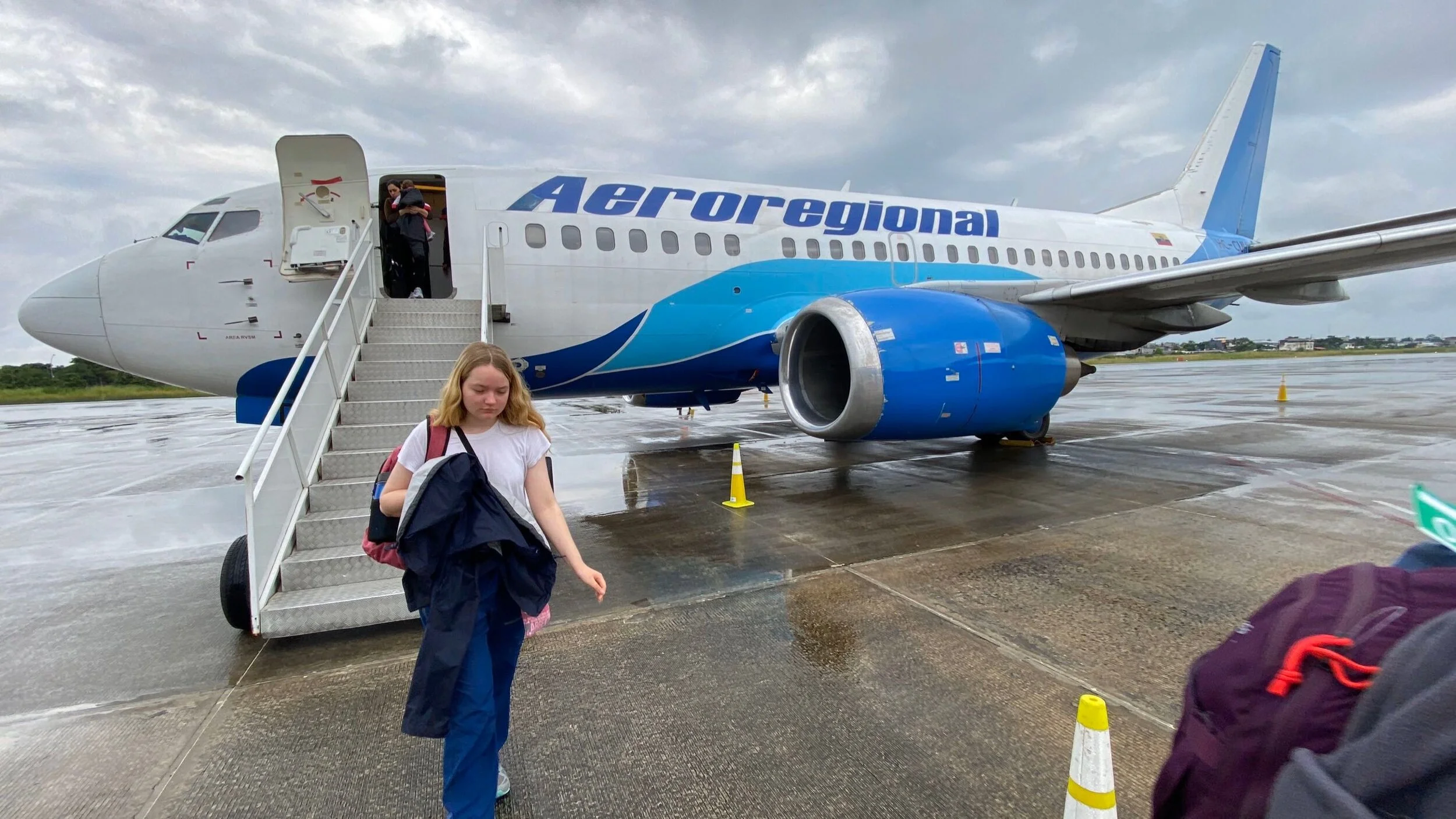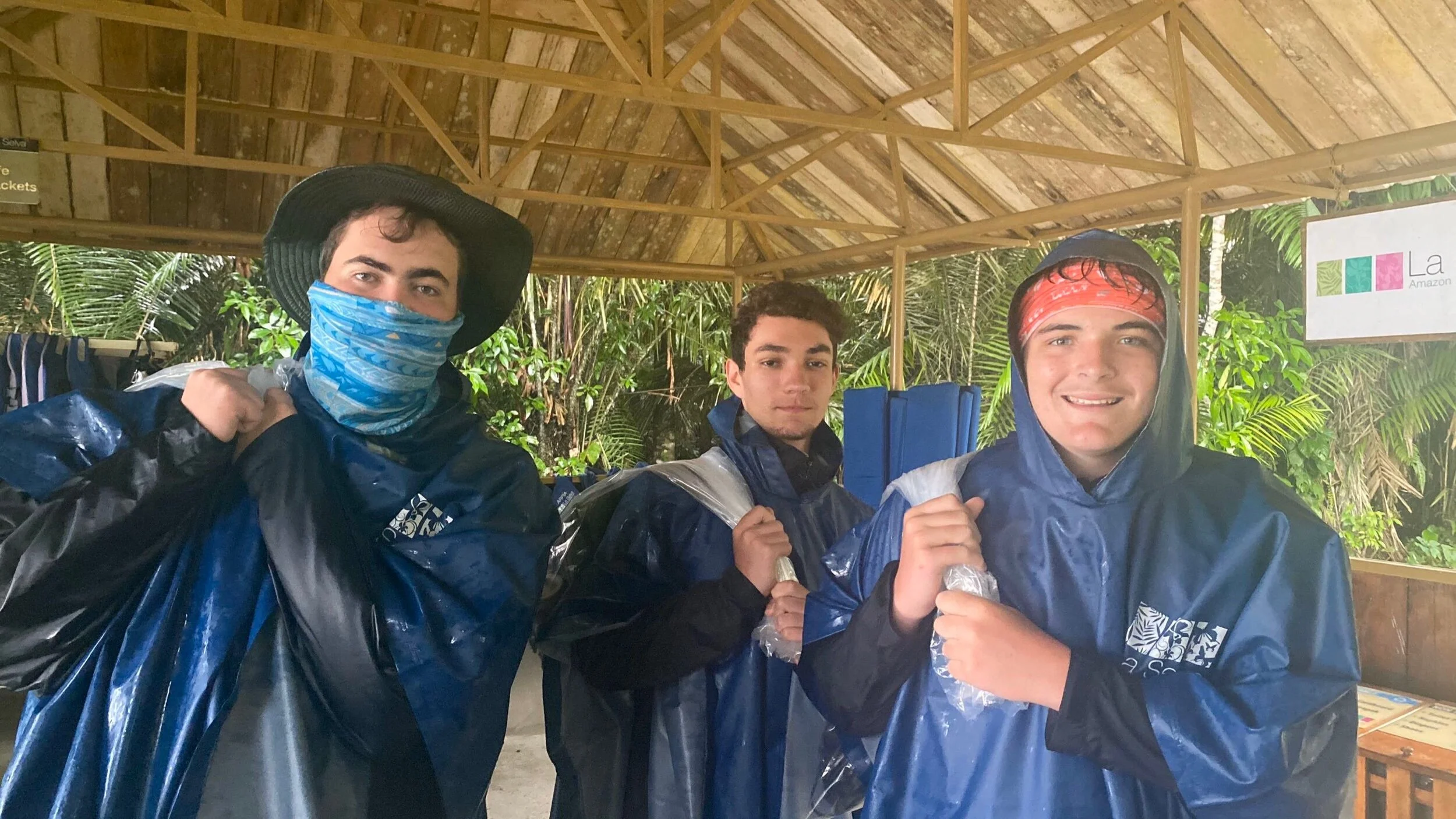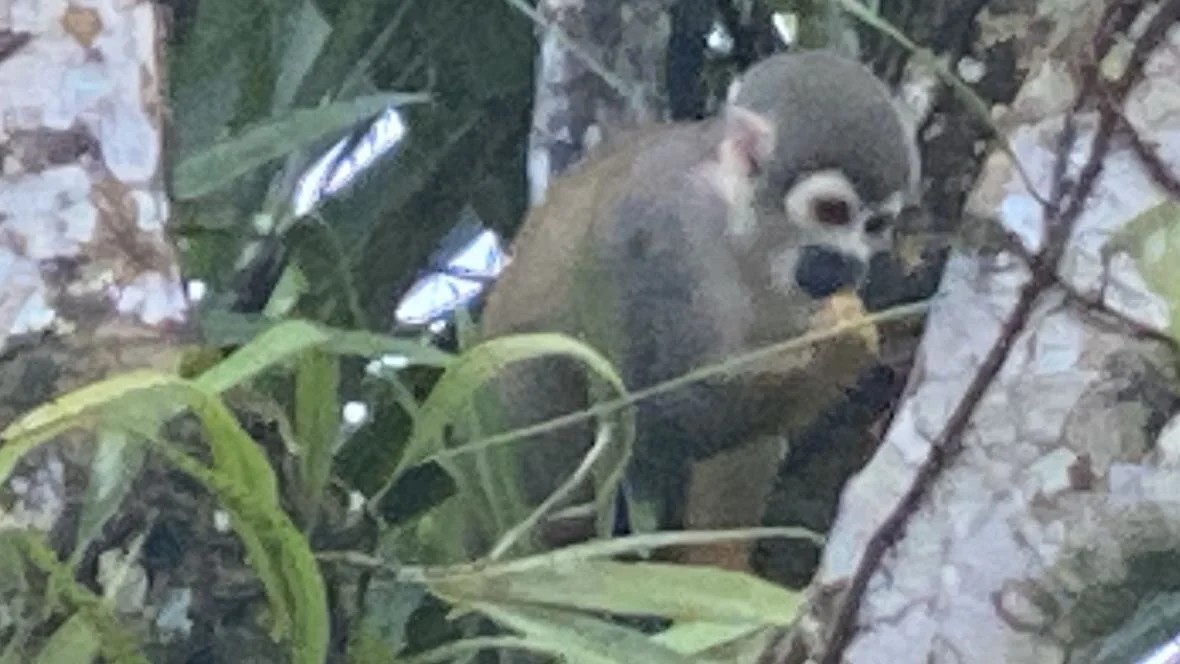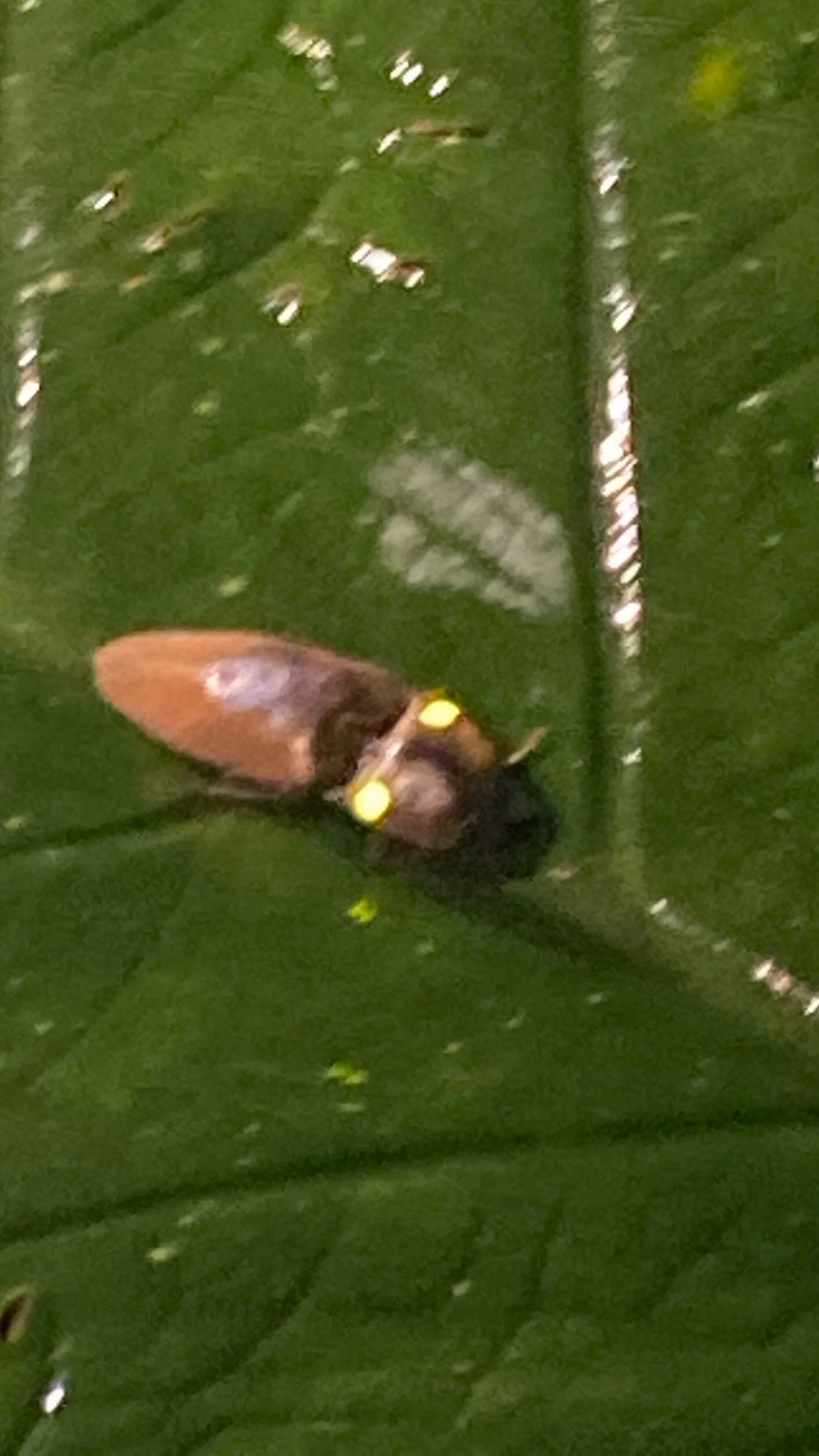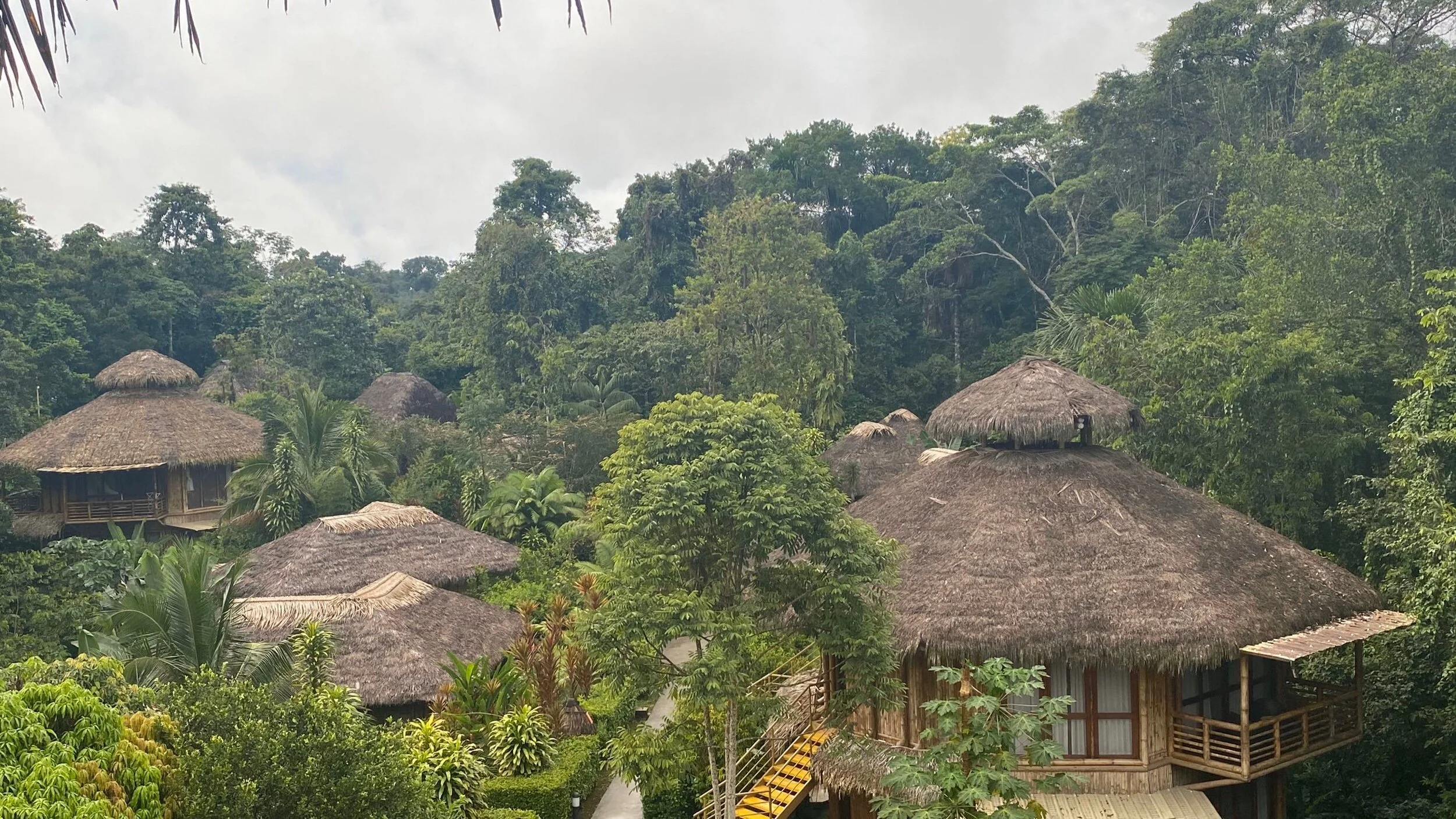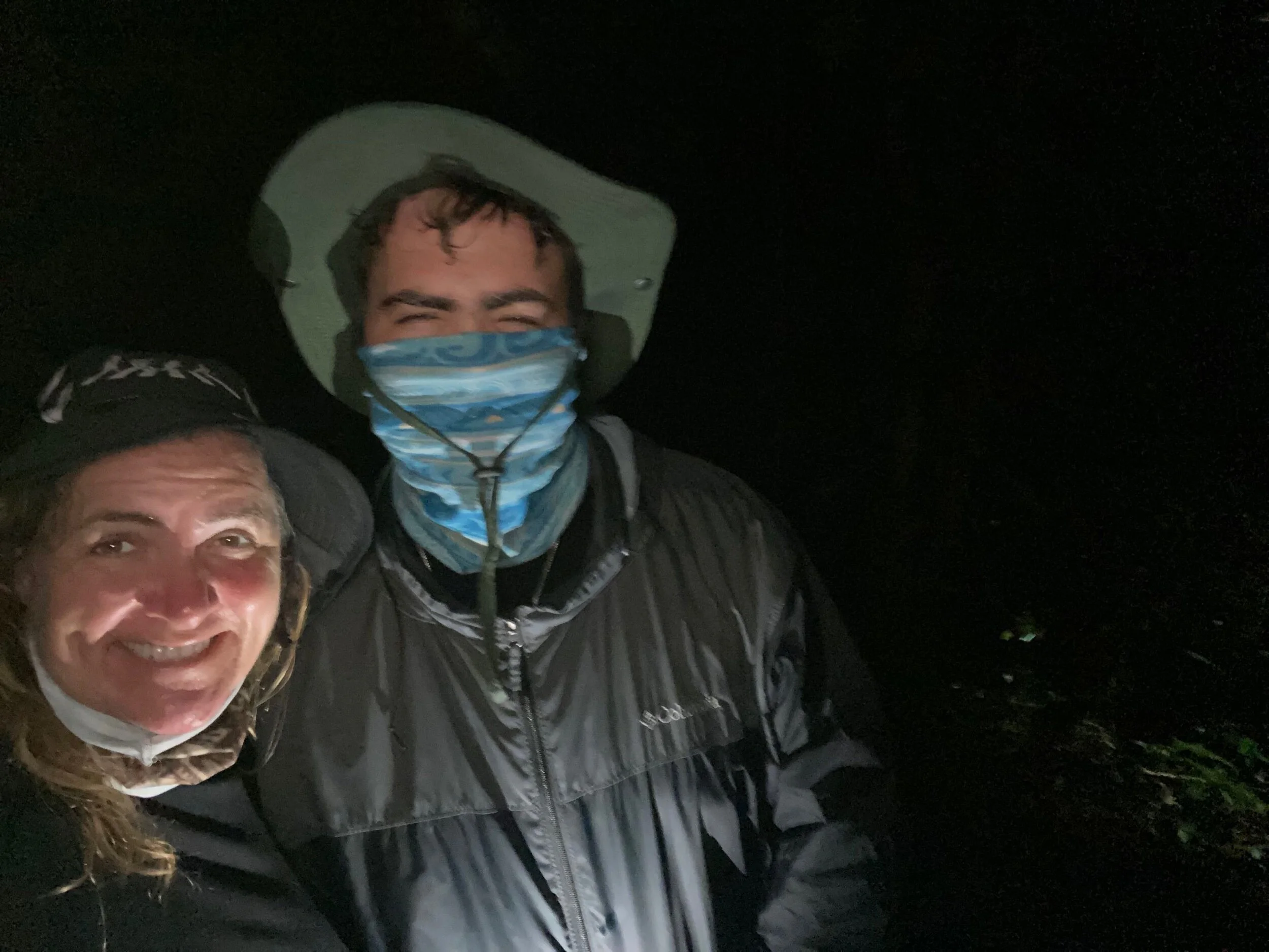2-1-20 - Welcome to Amazon Rainforest
/Happy February. Today we head to the Amazon. The Amazon Rainforest is the largest Rainforest in the world and is found in 9 countries in South America: Brazil, Peru, Ecuador, Colombia, Venezuela, Suriname, Bolivia, French Guiana and Guyana. In choosing our entry point, John decided on Ecuador’s portion of the Amazon for its proximity to the Galapagos Islands, but more importantly, even though Ecuador only has 1% of the Amazon Rainforest, it has the highest concentration of biodiversity in the Amazon due to its proximity to the equator and the Andes Mountains. John has booked us with the tour company La Selva.
We leave the historic hacienda to take a 30 minute Aero regional flight into Coca, Ecuador. The Quito airport is both empty and extremely pleasant with musicians at 9 am singing local music. We breeze through security in under a minute. We have found Airport Heaven here.
We are met at the airport by David, a 42-year old guide with more than 20 years of guiding in the Amazon. In the boat he shares with us the history of the Amazon when in 1542, the Spaniards came from Quito in search of gold and cinnamon with their dogs, pigs, horses she and enslaved Incans. Led by Francisco del Orellana, the expedition of the boat they made on the spot would have seen virtually the same scene we will today with a wide river and a handful of tribal communities living on each side. Orellana is given credit as the first person to navigate the entire length of the Amazon although it came with a steep price as he died of malaria in his early 40’s.
The two hour canoe ride to our lodge is peaceful as the rain pours down. Kyle and I utilize our proximity to David to learn more about our new Ecuadorian guide. He lives in Quito and spends 15 days working in Amazon for La Selva and 15 days back at home in Quito. In addition, he and his wife have a family business as beekeepers on a farm one hour south of Quito. He has been selling honey but is finding some new success in producing mead, or the medieval honey wine that is often referred to in Game of Thornes. Little did he bargain for was the questioning of two MBAs about his side gig. He said they make more profit from the mead wine than honey and mean is steadily gaining more popularity. He has close to one million bees on the farm to producing honey for his business.
David teaches us about the city formerly known as Coca, which is still used as a nickname as the official name is Francisco del Orellana. It is a city of ~60,000 people that expanded rapidly expanded in the 1960s and 70s when the oil companies expanded oil production. Today the city is a hub for tourism into the Amazon.
We have this nice peaceful ride down the Napo River, a tributary to the Amazon River, to the ecolodge we will stay in for a few days to enjoy the Amazon Basin. The Amazon is one of the most important places on Earth giving the Earth 20 percent of the oxygen we breath.
Here in the middle of the River, so far from civilization, we can feel its importance. Now after traveling nearly 8 months, we are convinced more than ever we know now how incredibly beautiful, diverse, kind, yet challenged and fragile this world and its peoples are.
We transfer from the big boat to a canoe and the guides paddle us down a small river to a big lake. The surrounding jungle landscape does not disappoint as it evokes imagery from Jurassic Park. We are expecting the ever-fierce T-Rex to come pounding through the trees straight at our boat. On the big lake, there is the lodge with its dock in front and it is the only building in a sea of trees, plants and shrubbery. As we are paddled up, Kyle is thinking that this place is so remote that there is no way on Earth that lodge will be showing the Super Bowl this Sunday.
The lodge is an open air building with the restaurant area on the 2nd floor and a viewing deck on the 3rd floor which provide amazing views of the lake. We check-in and are shown to our rooms in a separate bungalow. As soon as we get to our room, right outside the deck we see at least 20 squirrel monkeys jumping and playing in the trees adjacent to us. Kyle gets some stellar pictures. We apparently don’t know at this point how lucky we are.
At 5 pm, we have a briefing and presentation on the Amazon Rainforests. Dan shows us a map with all the rainforests in the world. We have been to the rainforest in Borneo and the Daintree rainforest in Australia which is the oldest in the world at 180 millions. By comparison, the Amazon is only about 40 million years old. The Amazon is the largest rainforest in the world.
Having been educated on the Amazon, Dan starts explaining how the guiding and expeditions will work. We will go out twice a day, in the morning from 6:30am to 11:30am and in the evening from 4pm – 7pm. The expeditions consist of trekking in the rainforest and canoeing on the lakes and rivers. Dan asks if anyone has come from the Galapagos and we raise our hand. “Oh great, that makes my job as a guide a lot harder,” he says. He goes on the explain that in the Galapagos, guides know exactly where to find the marine life and land creatures. In contrast, the Amazon Rainforest is a complete wildcard and you’ll won’t know what you’ll see until you see it making the guide’s job more difficult.
Dan explains further that we may go a long while without seeing anything saying, “it’s not like you’ll pull back the curtain to the window in your lodge and see a bunch of monkeys staring at you.” “Wait, but that’s exactly what happened this afternoon,” Kyle jumps up and exclaims. “Look, here are the pictures of the squirrel monkeys!” Kyle says showing everyone his perfect monkey pictures. “That is really rare,” Dan concedes. The other guests look a bit dejected and flashes a slide that says “This is NOT a competition.” “The hell it’s not,” Kyle whispers to Leanne, “everything in life is a competition.” Yes, Kyle won’t be authoring the book “How to win friends and influence people in the Amazon” anytime soon.
One of the more interesting tidbits from our rainforest lecture was that this part of the Amazon has a number of self-sufficient, un-contactable indigenous people groups. An un-contactable group is a euphemism for a group of humans who will kill you if you try to make contact with them. There’s at least one of these groups not too far from the lodge. Leanne asks how many there are and Dan says totally seriously, “we don’t know anyone we’ve ever sent to find them has never come back.” Yes, the Amazon is definitely not a risk-free proposition.
After our briefing, the family heads out for a night walk deep into the Yasuni National Park. Our expeditions will be led by Dan as well as Dario, a naturalist who is one of the local Ketchuan villagers. When you walk through the forests, two guides need to lead so we don’t walk right into anyone of the million or so spiderwebs meant to trap incoming prey.
Dan starts off warning us not to EVER touch the trees, not even if we slip and fall and are trying to save ourselves. He shines a light on a gigantic black ant crawling on a tree. “That my friends is a bullet ant and it has one of the most painful bites of any creature in the Amazon. He said if it bites your finger, first you finger will swell up, then your whole hand will swell up and throb, then your whole arm will swell up and you’d by crying out in agony for your arm to be amputated to stop the pain and then the pain will radiate out over your entire body. It will be 24 hours of living hell until the pain subsides.
“Who’s idea was it to come to this place?” as several faces are looking accusingly at Kyle. Well, that was the introduction Ashley needed to the Amazon. “That’s it, I’m going back!” she announces and turns around to leave. At this point we are fairly deep into the jungle so Kyle says, “You guys keep going, I’ll just run her back to the lodge and then catch back up with the group.” Dan looks at Kyle like he has absolutely lost his mind. Dan explains that the chances of Kyle getting lost coming back are 100% and the chances of Kyle surviving two hours in the Amazon in the dark are 0%. So Dan sends Dario back with Kyle and Ashley and he returns with Kyle.
The guides flashlights enlightens several different types of spiders - some with slingshots, some conclave and all are scary looking. Dan picks up a millipede that squirts out Amaretto-smelling cyanide. He tells us not to confuse the millipede with the centipede because the millipede will only douse you with cyanide but the centipede will maul and eat the top of your finger off. He picks up a green grasshopper “who could squirt a painful venom into your eyes”. He points out spiders that are big as our hand and just as creepy looking.
Suffice to say, here in the pitch black, a few of us were scared silly in the middle of the Amazonia forest far enough from our remote lodge that if we lost the guide we know we wouldn’t survive the night. Maybe not even an hour. Half the crew is asking exactly what time is dinner, and half the crew can’t get enough. It’s a 45 minute walk but felt like four hours to those not so into insects. Yes, it’s only been 45 minutes but we can already write the list of the top 25 ways to die in the Amazon.
As we return to the lodge, Dan leads us to a tree literally right outside our bungalow and points the resident gigantic, hairy female tarantula who eats her male counterparts. Add to that unfamiliar sounds of the jungle — insects purring, nocturnal birds chirping. Ah, to be so one with nature, both exhilarating and scary as hell at the same time.
At happy hour we mingle with the other guests who arrived with us today. We are fast making friends with New Jersey’s Gloria and Harlan and Vancouver couple Cliff and Mary, of retired age who enjoying traveling as a big part of their lives. We note that there are only three other people besides today’s group in the entire lodge.
We sit with Dan our guide for dinner. Since he’s from the UK, Leanne tells the kids to really make sure they use their best manners. He studied environmental science but “guiding pays better than research” so this has been his life here in Ecuador for the past 13 years. Now in his mid-thirties and in the midst of finalizing a divorce from his Ecuadorian wife, he dreamed of working in the Amazon in Ecuador starting at age 7 inspired by an encyclopedia entry.
When we return to the room the mosquito nets are drawn over our beds and the chorus of insects are singing even more now. We fall asleep to howler monkeys, the sounds of bats and innumerable insects’ chimes.



